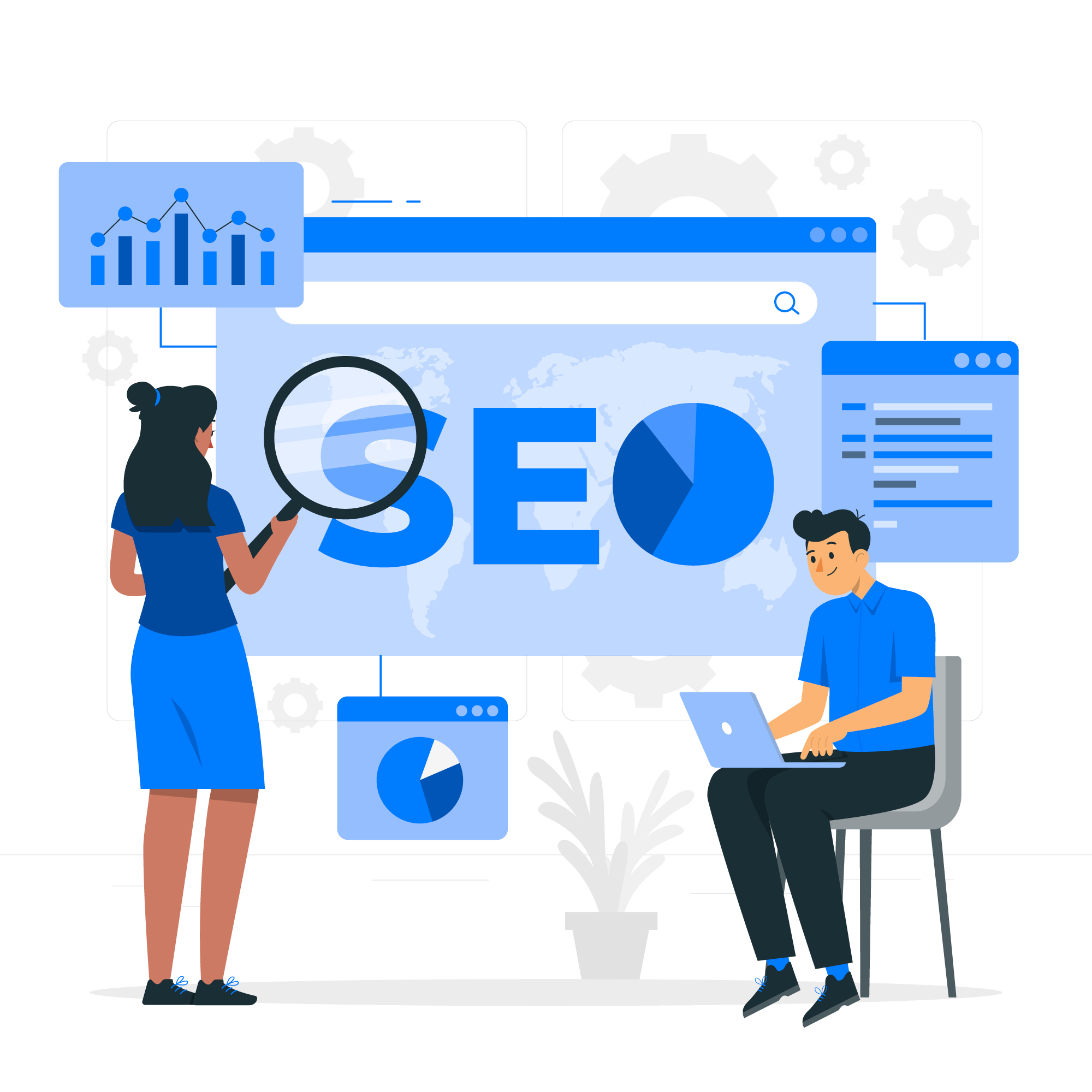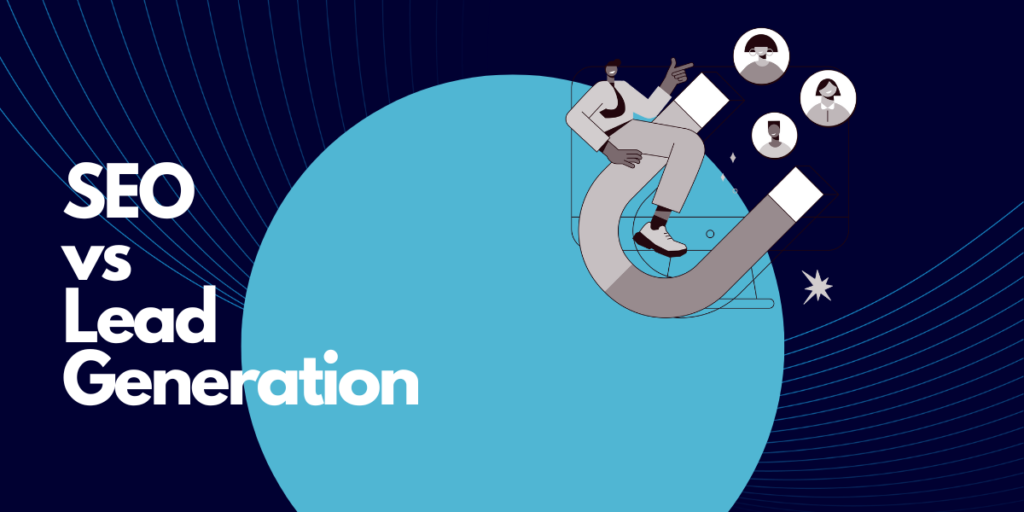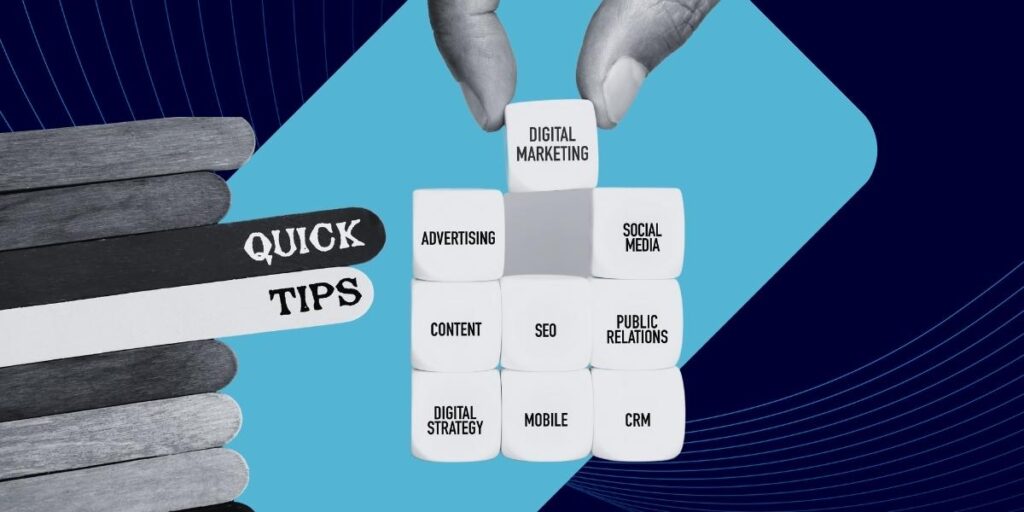In the world of digital marketing, two strategies stand out as pillars of success: SEO and lead generation. Both play crucial roles in driving traffic, increasing conversions, and ultimately growing your business. But how do you decide which strategy is right for your specific needs? In this blog post, we’ll explore the benefits and limitations of SEO and lead generation, factors to consider when choosing a strategy, and how combining these approaches can supercharge your online presence. Let’s dive in!
The Importance of SEO and Lead Generation
Understanding SEO

Understanding SEO is crucial for businesses looking to generate better traffic and improve search engine rankings. Keywords play a vital role in SEO, as they help drive targeted organic traffic to websites. On-page and off-page optimization techniques further enhance website visibility by optimizing site structure, meta tags, backlinks, and social media presence. Additionally, content marketing plays a significant role in SEO by providing valuable information that attracts and engages users.
Understanding Lead Generation

Different lead generation strategies, such as email marketing and social media, can help drive traffic and generate leads for your business. By utilizing these platforms effectively, you can reach a wider audience and attract potential customers to your website or landing page.
Once you have captured leads, nurturing them through automated workflows is essential.
Benefits and Limitations of SEO
Benefits of SEO
1. Increased organic traffic: SEO helps improve your website’s visibility in search engine results, driving more targeted traffic to your site. This can lead to higher conversion rates and increased sales.
2. Cost-effective: Compared to other digital marketing strategies, SEO can be a cost-effective way to attract potential customers. Once your website is optimized and ranks well in search engines, you can continue to receive organic traffic without spending extra money on advertising.
3. Long-term results: The effects of SEO are long-lasting. Unlike paid advertising, which stops generating traffic once the campaign ends, SEO can continue to drive organic traffic to your website for months or even years.
4. Builds credibility and trust: When your website ranks highly in search engine results, it signals to users that your site is trustworthy and authoritative. This can help build credibility and trust with potential customers, increasing the likelihood of them making a purchase or engaging with your business.
5. Targeted audience: SEO allows you to target specific keywords and phrases that are relevant to your business. By optimizing your website for these keywords, you can attract users who are actively searching for the products or services you offer, increasing the chances of conversion.
Limitations of SEO
1. Time-consuming: SEO is not a quick-fix solution. It requires time and effort to research keywords, optimize your website, create valuable content, and build quality backlinks. It may take several months before you start seeing significant results.
2. Constantly evolving: Searchengine algorithms are constantly changing, which means that SEO strategies need to be continuously updated and adapted. This can require staying up-to-date with industry trends and best practices, and may require investing in ongoing SEO services or hiring an in-house SEO expert.
3. Competition: SEO is a highly competitive field, and ranking well in search engine results can be challenging, especially for competitive keywords. It may require a significant investment of time and resources to outrank your competitors and maintain a top position in search engine rankings.
4. Limited control: While SEO can help improve your website’s visibility and drive organic traffic, it is ultimately up to search engines to determine how your site is ranked. This means that there are factors outside of your control that can impact your SEO efforts, such as changes in search engine algorithms or new competitors entering the market.
5. Results may vary: SEO is not a guaranteed method for success. While it can drive organic traffic and improve your website’s visibility, there are no guarantees that this will directly result in increased conversions or sales. Other factors, such as the quality of your products or services, pricing, and user experience, also play a significant role in determining customer behavior and actions.
Benefits and Limitations of Lead Generation
Benefits of Lead Generation
1. Increased Sales Opportunities: Lead generation allows businesses to identify and target potential customers who have shown interest in their products or services. By capturing their information, businesses can follow up with these leads and convert them into paying customers, resulting in increased sales opportunities.
2. Cost-Effective Marketing Strategy: Compared to traditional marketing methods such as print advertising or television commercials, lead generation is a cost-effective strategy. It allows businesses to reach a specific target audience and generate leads at a fraction of the cost.
3. Improved Return on Investment (ROI): As lead generation focuses on targeting potential customers who are already interested in a specific product or service, the conversion rate is generally higher compared to other marketing methods. This results in a better return on investment for businesses, as they are more likely to convert leads into paying customers.
4. Enhanced Customer Targeting: Lead generation allows businesses to collect valuable information about their leads, such as demographics, interests, and preferences. This data enables businesses to tailor their marketing efforts to the specific needs of their target audience, resulting in more effective and personalized campaigns

5. Increased Brand Awareness: Lead generation not only helps businesses generate sales but also enhances brand awareness. By reaching out to potential customers and providing them with valuable information or resources, businesses can establish themselves as industry experts and build trust with their target audience.
Limitations of Lead Generation
1. Quality of Leads: Not all leads generated through lead generation efforts may be of high quality. Some leads maynot be genuinely interested in the product or service, or their contact information may be inaccurate or outdated. This can result in wasted time and resources for businesses as they try to convert these low-quality leads into customers.
2. Lengthy Sales Cycle: Lead generation focuses on capturing potential customers at the early stages of the buying process. However, converting these leads into paying customers can often be a lengthy and complex process. It requires nurturing and building relationships with leads over time, which can extend the sales cycle and delay the realization of ROI.
3. Dependence on Technology: Lead generation heavily relies on technology and digital platforms for capturing and managing leads. This dependence on technology introduces potential risks such as data breaches, technical issues, or changes in algorithms and policies of the platforms being used. Businesses need to stay updated with the latest technologies and trends to ensure the effectiveness of their lead generation efforts.
4. Competition: Lead generation is a widely adopted strategy by businesses in various industries. This means that businesses may face strong competition in capturing the attention of potential customers and standing out from the crowd. It requires constant innovation and optimization of lead generation tactics to stay ahead of the competition.
5. Compliance with Regulations: Lead generation involves collecting and managing customer data, which can raise concerns about privacy and data protection regulations. Businesses need to ensure that they are compliant with relevant laws and regulations, such as GDPR, to avoid legal issues and maintain the trust of their customers.
Factors to Consider in Choosing b/w SEO and Lead Generation as a Strategy
Selecting between SEO and lead generation for your business strategy requires careful consideration. Each approach has its own distinct benefits and limits, with the best choice depending on your unique business objectives and audience demographics. Let’s explore the essential factors to weigh in this decision:
1.Goals and objectives:
The first factor to consider is your business goals and objectives. Are you looking to increase your website’s visibility in search engine results or are you more focused on capturing leads and converting them into customers? If your main objective is to improve your website’s ranking on search engines and increase organic traffic, then SEO might be the right strategy for you. On the other hand, if you want to generate leads and build a database of potential customers, then lead generation might be a better option.
2. Budget
Budget is another crucial factor to consider. SEO is a long-term strategy that requires consistent investment in content creation, optimization, and link building. It can take time to see significant results and ranking improvements. Lead generation, on the other hand, often involves investing in paid advertising campaigns, such as pay-per-click (PPC) or social media advertising. These campaigns can deliver quicker results but require a higher upfront investment. Consider your budget constraints and choose the strategy that aligns with your financial resources.
3. Timeframe
Consider the timeframe in which you need to see results. SEO is a long-term strategy that requires patience and consistent effort. It can take several months or even years to see significant improvements in your website’s rankings and organic traffic. On the other hand, lead generation strategies, such as paid advertising campaigns, can deliver quicker results. If you have a shorter timeframe and need immediate results, lead generation might be the better option for you.
4. Target audience:
Understanding your target audience is essential in choosing between SEO and lead generation. SEO focuses on optimizing your website and content to attract organic traffic from search engines. This strategy works well if your target audience is actively searching for products or services related to your industry. On the other hand, lead generation strategies, such as paid advertising, allow you to target specific demographics, interests, and behaviors. If you have a clear understanding of your target audience and want to reach them directly, lead generation might be the more effective strategy.
5. Competition:
Consider the level of competition in your industry. If you operate in a highly competitive market where many businesses are vying for the same keywords and search rankings, SEO might be more challenging and time-consuming. In such cases, lead generation strategies that allow you to target specific audiences through paid advertising can help you stand out from the competition. On the other hand, if you operate in a less competitive market, SEO might be a more viable option to improve your website’s visibility.
Combining SEO and Lead Generation
Synergizing SEO and lead generation can significantly boost your business. By aligning your keyword strategy with your lead capture process, you can attract high-quality organic traffic that is more likely to convert into leads. Incorporating relevant keywords in your content and optimizing meta tags can improve search engine rankings while attracting potential customers.
To combine SEO and lead generation effectively, make sure to create compelling landing pages with clear call-to-actions that are optimized for both search engines and user experience. Utilize data-driven insights to identify the most valuable keywords for targeting qualified leads. Additionally, leverage social media platforms to promote your optimized content and drive engagement, ultimately increasing brand visibility and generating more leads for your business.
Synergies between SEO and Lead Generation
The role of organic traffic in lead generation cannot be underestimated. By optimizing your website for search engines, you increase the chances of attracting relevant visitors who are more likely to convert into leads.
Improving the quality of leads generated is a key benefit of SEO. By targeting specific keywords and optimizing your content, you can attract a higher volume of qualified leads that align with your business objectives.
Leveraging keywords is crucial for both SEO and lead generation. Identifying the right keywords allows you to optimize your website for search engines while also creating content that speaks directly to your target audience’s needs and interests.
In summary:
- Organic traffic plays a vital role in generating leads.
- SEO improves the quality of leads by targeting specific keywords.
- Leveraging keywords benefits both SEO efforts and lead generation strategies.
Remember, combining effective SEO techniques with targeted lead generation strategies can significantly enhance your overall marketing efforts and drive sustainable business growth.
What are the costs associated with SEO vs lead generation?
Both marketing strategies have their own set of costs and benefits, and understanding these costs is essential for making informed decisions about your marketing budget.
SEO Costs:
1. Initial Investment: Implementing SEO strategies requires an initial investment to optimize your website, conduct keyword research, and analyze your competitors. This could involve hiring an SEO agency or dedicating internal resources to these tasks.
2. Content Creation: SEO relies heavily on high-quality content creation to drive organic traffic. This includes producing blog posts, articles, videos, and other forms of valuable content that target specific keywords and engage your audience. Content creation can be time-consuming and may require outsourcing or hiring dedicated staff.
3. Technical Optimization: SEO involves technical aspects such as website structure, page speed optimization, and mobile-friendliness. These optimizations often require the expertise of web developers or SEO specialists, which can add to the overall cost.
4. Ongoing Efforts: SEO is an ongoing process that requires continuous monitoring, analysis, and adjustments to stay ahead of the competition and search engine algorithm changes. This can involve regular content updates, link building, and tracking analytics, all of which contribute to the overall cost.
Lead Generation Costs:
1. Lead Generation Platforms: To generate leads, you may need to invest in lead generation platforms or software. These platforms help in capturing and managing leads, as well as tracking the effectiveness of your lead generation campaigns. The cost of these platforms can vary depending on the features and capabilities they offer.
2. Advertising and Promotion: Generating leads often requires advertising and promotional efforts. This could include running paid ads on social media platforms, search engines, or other relevant websites. The cost of advertising can vary depending on factors such as the platform you choose, the targeting options, and the competitiveness of your industry.
3. Content Creation: Similar to SEO, lead generation also relies on content creation to attract and engage potential leads. This includes creating landing pages, lead magnets, email campaigns, and other content assets that capture the attention of your target audience. Content creation costs for lead generation can be similar to those of SEO, requiring investments in time, resources, and potentially outsourcing.
4. Lead Nurturing: Once you’ve captured leads, it’s important to nurture them through targeted email campaigns, personalized content, and other strategies. This involves ongoing efforts to build relationships with leads and move them through the sales funnel. Lead nurturing can require investments in marketing automation software, email marketing tools, and dedicated staff or agencies to manage these campaigns.
Key Differences:
While both SEO and lead generation have their own costs, there are some key differences to consider. SEO focuses on improving organic search rankings and driving traffic to your website, while lead generation focuses on capturing and converting leads into customers.SEO and lead generation are both important strategies for businesses to stay ahead of the competition and attract customers. However, they have different costs and objectives.
SEO, or search engine optimization, focuses on improving organic search rankings and driving traffic to your website. The costs associated with SEO can include regular content updates, link building, and tracking analytics. These activities require investments in time, resources, and potentially outsourcing.
On the other hand, lead generation is about capturing and converting leads into customers. The costs of lead generation can include investing in lead generation platforms or software, advertising and promotion efforts, content creation, and lead nurturing. These activities help capture and manage leads, track the effectiveness of lead generation campaigns, and build relationships with potential customers.
Lead generation costs can vary depending on factors such as the features and capabilities of lead generation platforms, the cost of advertising on different platforms, the resources required for content creation, and the investments in marketing automation software, email marketing tools, and dedicated staff or agencies for lead nurturing.
Conclusion
When choosing between SEO and lead generation tactics for your business, keep in mind that a well-rounded marketing approach may be the most effective solution. By combining elements of both strategies tailored to suit your unique needs, you can maximize online visibility while generating high-quality leads that have a higher chance of converting into paying customers. Remember to continuously monitor performance metrics and adjust accordingly to ensure long-term success.
In conclusion, when it comes to optimizing your digital marketing efforts, combining SEO and lead generation strategies can significantly enhance your results. If you’re looking for expert guidance and support in implementing these strategies, consider partnering with The Marketing Hawks. With our team of experienced professionals, we can help you conduct thorough keyword research, optimize your website and content, create compelling landing pages, and develop a robust content marketing strategy to boost organic search rankings and acquire valuable leads. Don’t miss out on the opportunity to drive sustainable business growth. Contact The Marketing Hawks today and let us take your marketing efforts to new heights.
Ready to soar above the competition? 🦅
Whether it's mastering SEO or championing lead generation, Marketing Hawks has got you covered
Learn more




